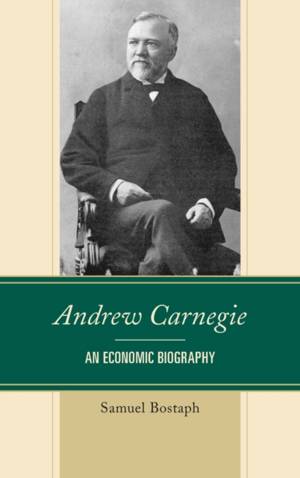
- Afhalen na 1 uur in een winkel met voorraad
- Gratis thuislevering in België vanaf € 30
- Ruim aanbod met 7 miljoen producten
- Afhalen na 1 uur in een winkel met voorraad
- Gratis thuislevering in België vanaf € 30
- Ruim aanbod met 7 miljoen producten
Zoeken
Omschrijving
This biography of Andrew Carnegie emphasizes the economic dimension of his career in industry. It examines his life as a dynamic innovator during the period when the steel industry rapidly expanded and the United States became a major industrial power. Carnegie rose from a poverty-stricken Scottish childhood to a position of international industrial leadership, philanthropy, and peace advocacy, by means of intelligence, entrepreneurship, ambition, tenacity, guile, and ruthless determination. It is shown that Carnegie excelled as an economic actor. His alertness to expected profit opportunities, and success in coping with the uncertainties of the marketplace, made him a major influence on the growth of many of the most important industries of late-nineteenth century United States and world economies. His contribution to the better coordination of the actions of both demanders and suppliers in those industries by managerial, technological, and institutional innovations is emphasized. It is also argued that those profit-seeking actions and innovations occurred in the context of political policies and social institutions that produced a tremendous mal-investment of resources. This mal-investment was a result of protective tariffs, the stimulus and waste of war, and government subsidization of the railroad industry. Carnegie's role in this massive diversion of resources from other uses to those from which he personally benefitted is also emphasized. Lastly, Carnegie's actions in giving away the great personal fortune that he accumulated as he built his business empire are examined and their economic implications assessed.
Specificaties
Betrokkenen
- Auteur(s):
- Uitgeverij:
Inhoud
- Aantal bladzijden:
- 138
- Taal:
- Engels
- Reeks:
Eigenschappen
- Productcode (EAN):
- 9780739189832
- Verschijningsdatum:
- 8/10/2015
- Uitvoering:
- Hardcover
- Formaat:
- Genaaid
- Afmetingen:
- 152 mm x 231 mm
- Gewicht:
- 294 g

Alleen bij Standaard Boekhandel
+ 373 punten op je klantenkaart van Standaard Boekhandel
Beoordelingen
We publiceren alleen reviews die voldoen aan de voorwaarden voor reviews. Bekijk onze voorwaarden voor reviews.







